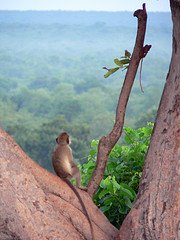Human biases affect conservation (or the lack thereof). Our biases also affect protection in other arenas.
Human preference for other species could determine whether they survive
"Color is not the only factor that determines a species' attractiveness to humans. Characteristics such as size and neoteny – the retention of babyish physical traits such as large eyes and large head – also can play major roles for some animals. Pandas, zebras and elephants, for example, are black and white or gray but are highly preferred by humans.
Millions of insects and the countless slimy invertebrates that occupy the oceans are likely not as lucky, Stokes said.
'The work pretty conclusively shows there is a large difference of appeal among organisms, even among closely related organisms,' he said. 'For different kinds of organisms, different qualities seem to cause differences of appeal.'
The work is a signal to conservationists to be mindful of the role of public popularity, and what might cause it, when making decisions about how to deal with various species, even invasive species. He noted that mountain goats introduced to Olympic National Park in Washington state have damaged park ecosystems, but because of their popularity it has been difficult for park managers to remove them. Likewise, while groups of conservationists gather on weekends to pull invasive English ivy from trees and shrubs on public lands, some homeowners continue to plant the attractive vine in their yards, where it can spread to the wild.
'We do have these big differences in how we feel about living things,' Stokes said. 'These feelings are going to play a big role in what we choose to conserve.'"


0 Comments:
Post a Comment